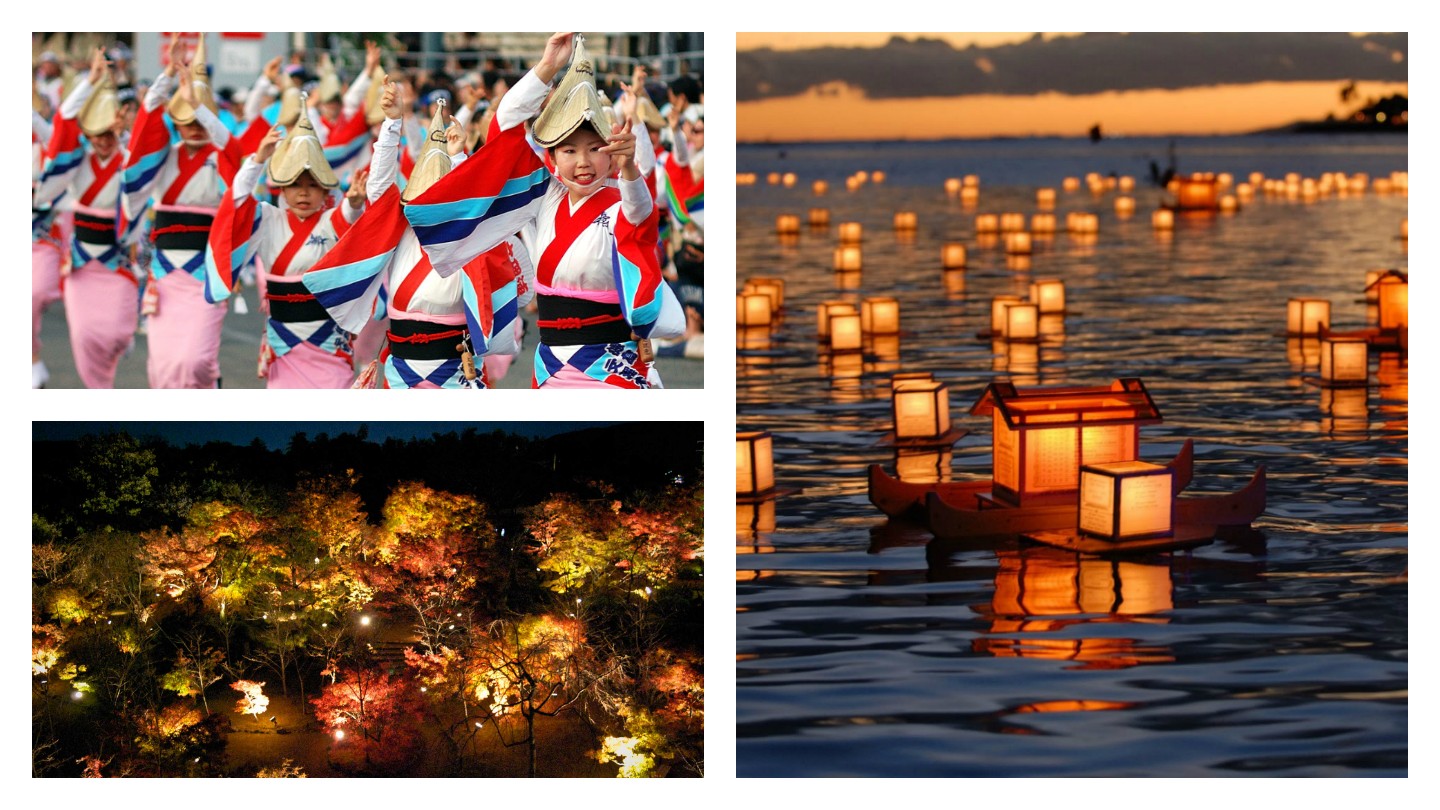-
![World Vape Show (Dubai) ilikevents]()
World Vape Show (Dubai)
Dubai , United Arab Emirates
-
![Jin Jiang Apparel Fabric Accessories & Yarns Fair ilikevents]()
Jin Jiang Apparel Fabric Accessories & Yarns Fair
Jin Jiang , China
-
![KazAgro / KazFarm ilikevents]()
KazAgro / KazFarm
Astana , Kazakhstan
-
![Caffè Culture Show ilikevents]()
Caffè Culture Show
London , England
-
![Trustech (Cartes Secure Connexions) ilikevents]()
Trustech (Cartes Secure Connexions)
Paris , France
-
![Iran Beauty & Clean ilikevents]()
Iran Beauty & Clean
Tehran , Iran
-
![POWER-GEN Russia ilikevents]()
POWER-GEN Russia
Moscow , Russia
-
STONE INDUSTRY MOSCOW
Moscow , Russia
-
![Sheikh Zayed Festival ilikevents]()
Sheikh Zayed Festival
Abu Dhabi , United Arab Emirates
News of Obon Festival
Time left to the end of event
Available services for Obon Festival
Obon Festival travel services
Video clips of Obon Festival
More Information about Obon Festival
- More Less
A Family Affair:
The Obon Festival has transformed into a family reunion of sorts. It’s common for urban dwellers to visit their hometowns and adorn their ancestors' graves with flowers, and many homes have altars dedicated to the spirits with food offerings and chochin lanterns. One of the most common and beautiful rituals is releasing toro nagashi (floating lanterns) into the ocean, rivers and lakes, carrying the spirit of ones ancestors back to the afterlife. Fire also plays a central role and is used in purification ceremonies (most temples have a candle-lighting ceremony).
Awa Odori in Obon Festival 2020:
The Awa Odori is perhaps the best part of the Obon Festival and takes place every August 13th through the 15th at Tokushima on Shikoku Island. Though the island’s population is only around 250,000, nearly 1.3 million visitors attend every year. The rowdy, street-dancing riot of color and culture originated in 1586, when a feudal lord hosted a sake-drenched party of epic proportions to inaugurate the Tokushima Castle. The ancient rules were strict: dancing in the streets was only allowed for these 3 days, samurai were only permitted to dance at home with the door closed, and there was no dancing at temples or with swords or masks.
Obon Festival 2020 Shifting Dates:
The Obon Festival lasts for 3 days and is celebrated at different times in different regions. Due to a shift from the lunar to the Gregorian calendar, there can be up to three different dates. Shichigatsu Bon (Bon in July) is celebrated in eastern cities such as Tokyo on July 15th. Hachigatsu Bon (Bon in August) and Kyu Bon (Old Bon) are based on the lunar calendar, and both are usually celebrated around August 15th. That can change yearly, however, so it’s best to check in advance.

For further information, please click here .
Venue of Obon Festival
Weather Forecast of Obon Festival
Comment
You can also enter your comment about this event
Your favorite events
Event rate of 3 vote
Obon Festival will be held 15 to 16 Aug 2020 in Kyoto, Japan. Obon Festival is an annual Buddhist event for commemorating one's ancestors. It is believed that each year during obon, the ancestors' spirits return to this world in order to visit their relatives. Traditionally, lanterns are hung in front of houses to guide the ancestors' spirits, obon dances (bon odori) are performed, graves are visited and food offerings are made at house altars and temples. At the end of Obon, floating lanterns are put into rivers, lakes and seas in order to guide the spirits back into their world. The customs followed vary strongly from region to region. Obon is observed from the 13th to the 15th day of the 7th month of the year, which is July according to the solar calendar. However, since the 7th month of the year roughly coincides with August rather than July according to the formerly used lunar calendar, Obon is still observed in mid August in many regions of Japan, while it is observed in mid July in other regions. Obon Festival is an event and I like events...








/LOGO.png)




